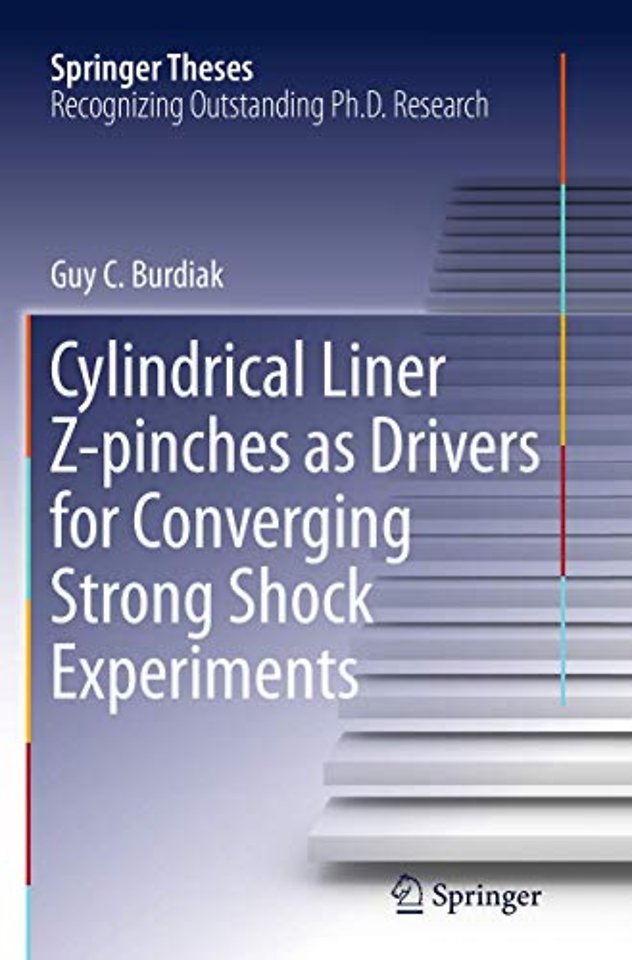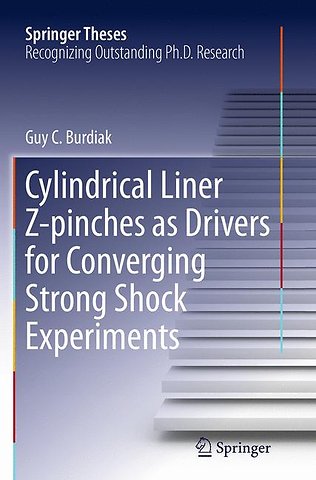Cylindrical Liner Z-pinches as Drivers for Converging Strong Shock Experiments
Samenvatting
The thesis represents the development of an entirely new experimental platform for generating and studying converging radiative shock waves. It was discovered that the application of large magnetic pressures to gas-filled cylindrical metallic tubes could sequentially produce three shocks within the gas. A comprehensive set of instrumentation was devised to explore this system in detail and an exceptionally thorough experimental and theoretical study was carried out in order to understand the source of the shock waves and their dynamics. The research is directed towards some of the most interesting topics in high energy density physics (HEDP) today, namely the interaction of HED material with radiation and magnetic fields, with broad applications to inertial confinement fusion (ICF) and laboratory plasma astrophysics. The work has already generated significant international interest in these two distinct research areas and the results could have significant importance for magnetic ICF concepts being explored at Sandia National Laboratories in the US and for our understanding of the very strong shock waves that are ubiquitous in astrophysics.

